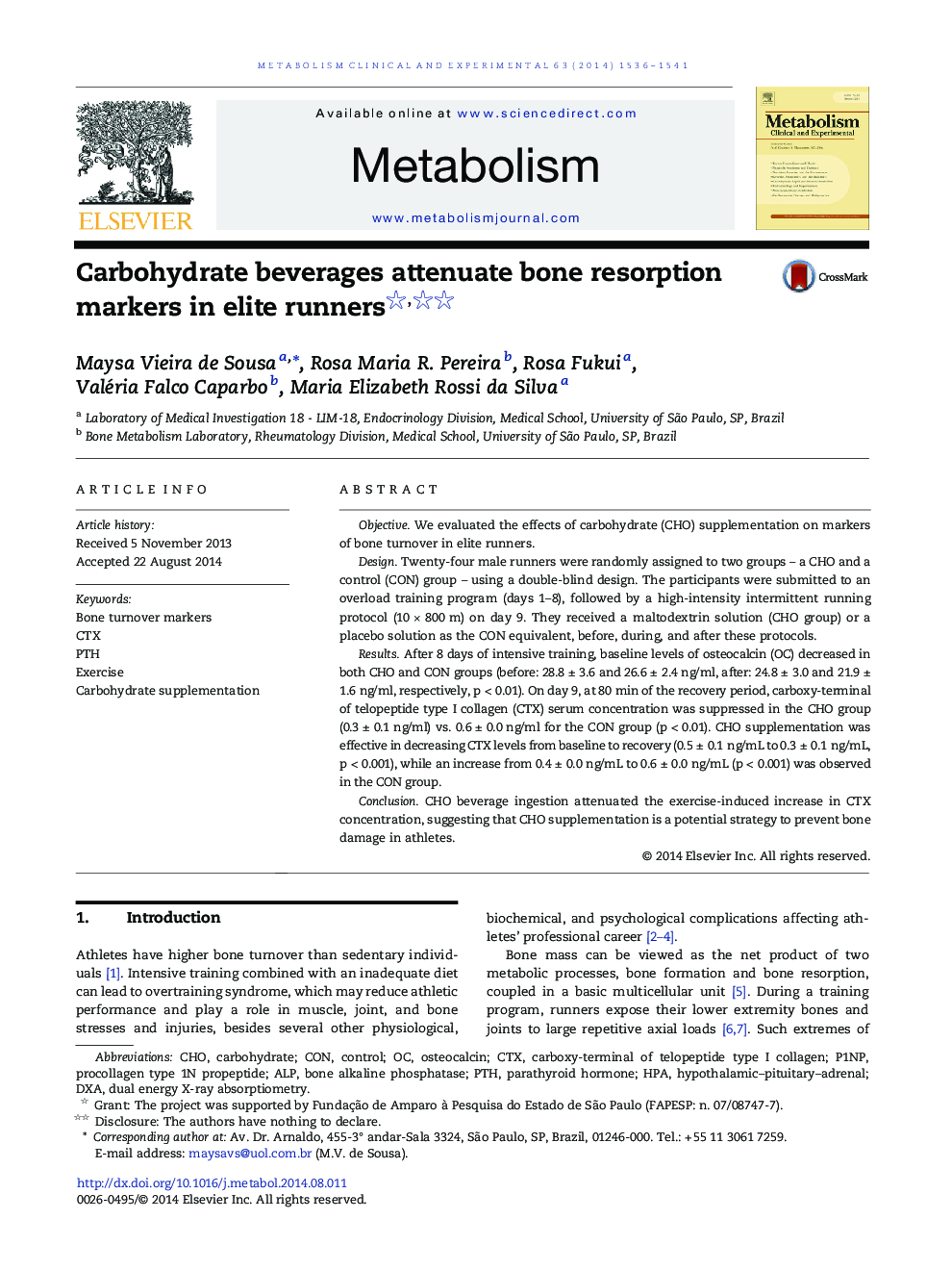| Article ID | Journal | Published Year | Pages | File Type |
|---|---|---|---|---|
| 5903486 | Metabolism | 2014 | 6 Pages |
ObjectiveWe evaluated the effects of carbohydrate (CHO) supplementation on markers of bone turnover in elite runners.DesignTwenty-four male runners were randomly assigned to two groups - a CHO and a control (CON) group - using a double-blind design. The participants were submitted to an overload training program (days 1-8), followed by a high-intensity intermittent running protocol (10 Ã 800 m) on day 9. They received a maltodextrin solution (CHO group) or a placebo solution as the CON equivalent, before, during, and after these protocols.ResultsAfter 8 days of intensive training, baseline levels of osteocalcin (OC) decreased in both CHO and CON groups (before: 28.8 ± 3.6 and 26.6 ± 2.4 ng/ml, after: 24.8 ± 3.0 and 21.9 ± 1.6 ng/ml, respectively, p < 0.01). On day 9, at 80 min of the recovery period, carboxy-terminal of telopeptide type I collagen (CTX) serum concentration was suppressed in the CHO group (0.3 ± 0.1 ng/ml) vs. 0.6 ± 0.0 ng/ml for the CON group (p < 0.01). CHO supplementation was effective in decreasing CTX levels from baseline to recovery (0.5 ± 0.1 ng/mL to 0.3 ± 0.1 ng/mL, p < 0.001), while an increase from 0.4 ± 0.0 ng/mL to 0.6 ± 0.0 ng/mL (p < 0.001) was observed in the CON group.ConclusionCHO beverage ingestion attenuated the exercise-induced increase in CTX concentration, suggesting that CHO supplementation is a potential strategy to prevent bone damage in athletes.
